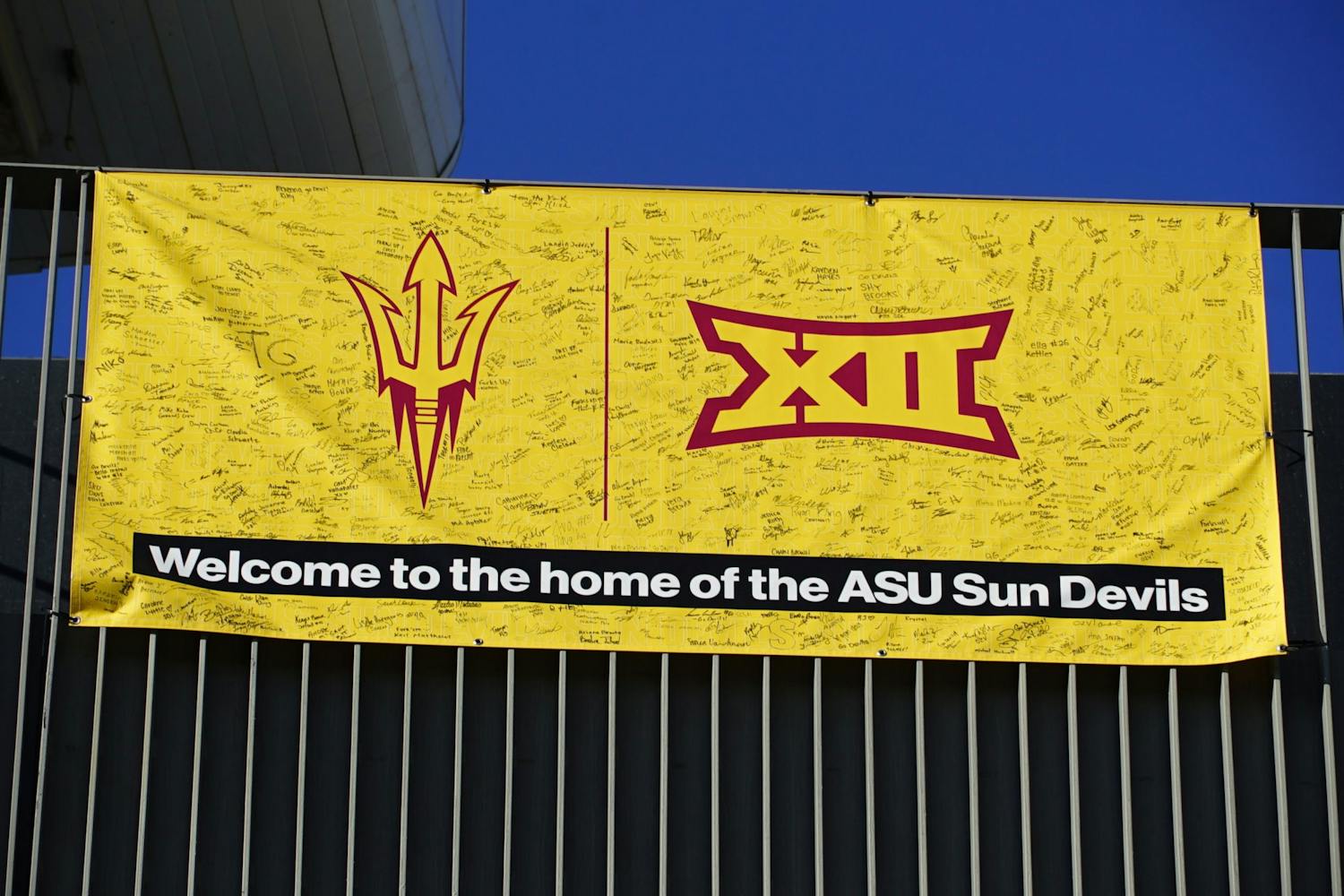The Associated Students of ASU Supreme Court issued two rulings Thursday, siding with one Undergraduate Student Government executive ticket over another in a campaign rules debate and then changing its support over a claim of unfair treatment.
The Palmer executive ticket, with Jacqueline Palmer for president, Joshua Freid for vice president of services and Kajol Kapadia for vice president of policy, now has six infraction points against their campaign.
Any campaign with nine infraction points, or who violates the election code with a level three offense, has their campaign suspended. Campaigning began on March 30 and will end with election day on April 14 and 15.
Leveque v. Elections Department
In early March, the Leveque executive ticket filed a complaint against the Palmer executive ticket with the Elections Department claiming that they had begun campaigning early by soliciting student leaders for endorsements on March 14.
READ MORE: A guide to this year's USG executive tickets
The Leveque ticket was notified by an outside source of text messages sent by Palmer ticket vice president of policy candidate Kajol Kapadia to student leaders asking for contact information and endorsements, something the Leveque ticket said cannot begin until the campaigning period starts.
The Elections Department responded to one of the Leveque complaints, issuing three infraction points to the Palmer executive ticket but retracting them later that day, claiming they could not make a proper decision because they had not responded to the complaint within two business days, per the USG election code.
The Leveque ticket appealed the decision to the Supreme Court and presented the following three issues: Palmer was in violation of campaign rules and should receive nine infraction points effectively suspending their campaign, the Elections Department's decision to void the complaints in the first place was invalid and the Palmer executive ticket's infractions "sustained injury" to the Leveque ticket.
The court sided with Leveque, upholding the claim and rule that campaigning cannot start before the official campaign period.
"While the dates of the campaign were moved due to the complications from the COVID-19 pandemic, all candidates were duly informed that the start date of March 16 was to be changed to March 30," Tempe Justice Chase Walther wrote in the court's opinion.
READ MORE: ASASU election campaigns rescheduled due to coronavirus
During rebuttal, the Palmer ticket said that they were working to build a campaign team. However, distribution of campaign materials "presents an unfair advantage to any other tickets who had not yet distributed their campaign materials," according to the court's opinion.
The court decided that the Elections Department did not have the authority to retract its decision and the action to do so was unfair, causing harm to the Leveque ticket by allowing the Palmer ticket to obtain "an unfair advantage within the student body, causing some students to have made a decision on a campaign before all campaigns launched," the court's opinion said.
"We want to make sure that this election season is as transparent and fair as possible," said Trey Leveque, the presidential candidate on the Leveque ticket, said in an email to The State Press.
The court put six infraction points on the Palmer campaign due to their early distribution of campaign information and wrote that they would make recommendations to the election code in the case of a future campaign rescheduling.
"The Leveque Ticket is grateful for the rules and guidelines that the Elections Department sets forth to ensure an equitable election process for students," Leveque wrote.
Palmer v. Leveque
At the same time that the Leveque ticket was appealing their case against the Elections Department, the Palmer ticket was making the same move to defend themselves. They claimed they had not violated campaign rules and they believed the Elections Department was negligent by not holding a hearing for the petition.
The Palmer ticket claimed that the text messages sent to student leaders before the campaign period were to people they were trying to contact to be a part of their campaign team. While that may be true, the court's opinion clarified that the Palmer ticket had still violated campaign rules.
The court decided the Palmer ticket was "unfairly treated" when they were not notified of the complaint filed by the Leveque ticket, leaving them without "appropriate due process."
"The election code wasn't clear and we really wish that it was," said USG presidential candidate Jacqueline Palmer, adding that if elected, her team would make suggestions to the Senate for formal changes and clarification of language.
Because the Elections Department did not follow the rules of notifying the Palmer ticket of the complaint or scheduling a hearing, the court sided with Palmer.
The three infraction points from the Elections Department were nullified but the Palmer ticket still has six from the Leveque v. Elections Department case.
"It's unfortunate that the situation even occurred," Palmer said. "I don't like that it was dramatic, we should all be focusing on what we're going to do for students."
Reach the reporter at pjhanse1@asu.edu and follow @piperjhansen on Twitter.
Like The State Press on Facebook and follow @statepress on Twitter.

Piper Hansen is the digital editor-in-chief at The State Press, overseeing all digital content. Joining SP in Spring 2020, she has covered student government, housing and COVID-19. She has previously written about state politics for The Arizona Republic and the Arizona Capitol Times and covers social justice for Cronkite News.




